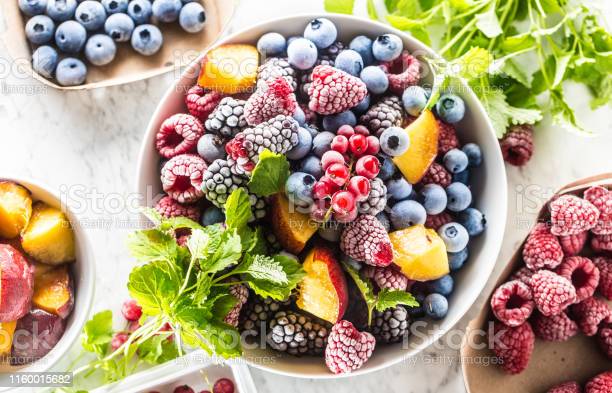Frozen vs Fresh Produce: Which Packs the Most Nutritional Punch?

Fresh from the Farm: The Truth about Fresh Produce
When we think of healthy eating, images of succulent fruits and crisp vegetables often come to mind. While fresh produce certainly has its appeal, it's subject to seasonal availability and rapid nutrient loss.
Fruits and vegetables start losing nutrients immediately after they're harvested. By the time they make it to grocery store shelves and then to your plate, their nutrient content can be significantly diminished. Enzymatic reactions and the impacts of light, heat, and air can all contribute to this nutrient loss.
The Cold Hard Facts: Frozen Fruits and Vegetables
Enter the world of frozen fruits and vegetables. A game-changer in the journey towards weight management and better health. Frozen produce is picked and frozen at its peak ripeness, which locks in the nutrient content at its highest point. This process, known as flash freezing, significantly slows down nutrient decay, ensuring that when you reach into your freezer, you're always pulling out a nutrient-rich product.
Environment and Dietary Considerations
It’s also essential to consider environmental impact and dietary needs. Frozen fruits and vegetables eliminate concerns about in-season availability and can help reduce food waste, as they don't rot if you forget about them. For individuals with digestive conditions, like Irritable Bowel Syndrome (IBS), incorporating frozen fruits and vegetables into meals may be easier to digest.
The Verdict
So are frozen fruits and vegetables a healthier choice than fresh ones? The answer isn't black and white. Both fresh and frozen produce have their advantages and drawbacks. The nutritional content can vary greatly depending on how fresh the fresh produce is, where it comes from, and how long it sat before it made it to your plate.
On the flip side, if we consider nutrient retention, accessibility, waste reduction, and potential ease on the digestive system for those with conditions like IBS, frozen fruits and vegetables stand as a solid contender. The convenience of having them on hand in the freezer is truly a modern advantage that shouldn't be overlooked.
In conclusion, it wants to be stressed that incorporating a variety of both fresh and frozen fruits and vegetables into your diet is the key to ensure you get a wide range of nutrients. There is room in everyone's diet for both farm-fresh and flash-frozen produce - the most important thing is to just keep eating your fruits and veggies.